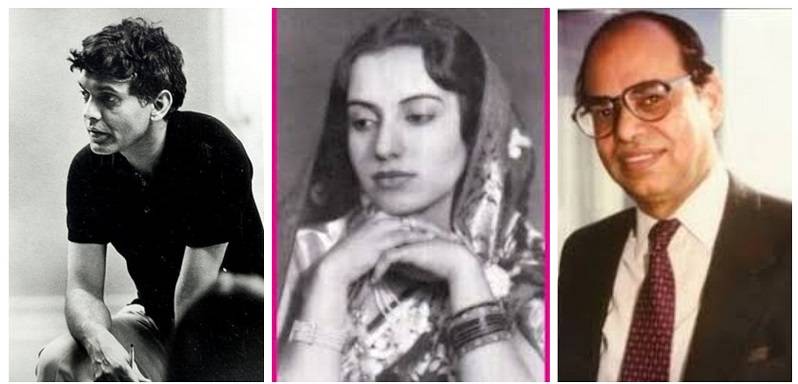
‘Of fragrance and colour, beauty and goodness
The metaphors all began and ended in you’
—Faiz Ahmed Faiz
A couple of days ago, I was scrolling through Facebook, and a post caught my eye. It stated how Pakistan has a shortage of intellectuals, thinkers, opinion-makers, and reformers. And yet, they definitely existed. Unfortunately, most of these brilliant minds seem missing from our history as they were neglected and ostracised by our country. Let’s remember a few of these brilliant minds on 14th August from whom I draw my inspiration, I hope you do too.
1. Eqbal Ahmad (1933-99)
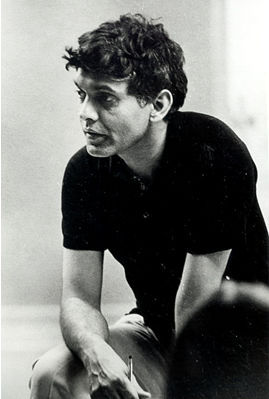
Eqbal Ahmad was an anti-war, anti-imperialist, writer, academic, and journalist. He was an advocate of the Palestinian cause and was involved in the Algerian Revolution. He has influenced and collaborated with thinkers like Chomsky, Said, and Fanon. He was considered ‘a revolutionary and intellectual who was the Ibn-Khaldun of modern times.’ His advice to the younger generation was,
“Number one, read. Number two, intervene. For God’s sake, let us not be only consumers of information. Each person knows some truth – and I really think that almost anyone who is listening to you and to me right now has some knowledge, some truth, some understanding of the world, that is different from that of the dominant media institutions. The moment you find that your truth clashes with what is being peddled as their truth, intervene.”
He had a dream of establishing a liberal arts college named after Ibn Khaldun in Islamabad but could not fulfill it.
2. Kishwar Naheed (1940-)
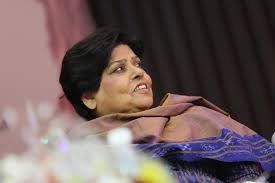
Kishwar Naheed is an Urdu poet, activist, and feminist. She has written 12 volumes of poetry. Her poetry has also been translated into English and Spanish. She advocates of poetry based on women, society, and politics. She has also written eight books for children. She is considered one of the few champions of peace in South Asia. She has been the recipient of various awards including, Adamjee Prize of Literature on Lab-e-goya (1969), UNESCO Prize for Children’s Literature on Dais Dais ki kahanian, Best translation award of Columbia University Mandela Prize (1997), and Sitara-e-Imtiaz (2000).
3. Hamza Alavi (1921-2003)
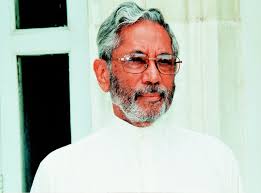
Hamza Alavi was a Pakistani political activist, sociologist, and teacher, known for his outstanding intellectual and political integrity. He wanted to do things in and for his country and its people. He used Marxism to analyze Pakistan. He is known in the world for his analysis of post-colonial states, peasant revolutions, and marginalized groups. His readings are still relevant decades later as they teach us why the establishment still controls Pakistan. He was an avowed feminist who supported all the major women’s movements in Pakistan.
4. Shaista Suhrawardy Ikramullah (1915-2000)
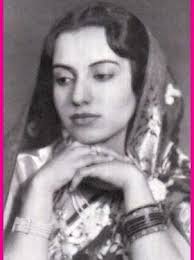
A diplomat, freedom activist, and author. Begum Shaista Suhrawardy Ikramullah was the first female representative in Pakistan’s first National Assembly. She has served as Pakistan’s ambassador to Morocco. In addition, she wrote for several magazines and penned essays on Islam, language, and other themes. She was awarded Nishan-i-Imtiaz, posthumously by the Government of Pakistan in 2002.
5. Mahbub-ul-Haq (1934-98)
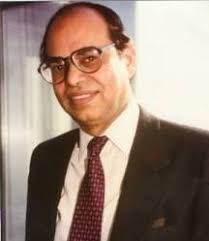
Pakistan’s Chief Economist who is considered an authority in development and game theory. Mahbub Haq created the Human Development Index for the UN which is still being used. He was the first to highlight inequality during the Ayub era. He also made the planning commission of Pakistan a proper institute. UN has created an award in his name: The Mahbub-ul Haq Award for his contribution to human development. He is celebrated by individuals like Amartya Sen and Kofi Annan.
6. Fazlur Rahman Malik (1919-88)
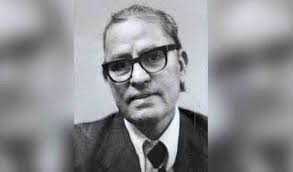
Modernist scholar of Islam, philosopher, and reformer, Fazlur Rahman was exiled for his progressive thinking. He advocated a move away from dogmatic conservative systems of religion. Still considered one of the finest modernist scholars of Islam. His writings have continued to be popular among scholars of Islam and the Near East.
7. Mubarak Ali (1941-)
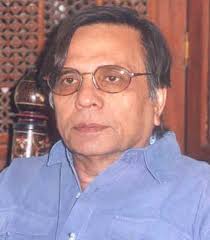
Dr. Mubarak Ali is an eminent historian, activist, scholar, and a columnist. He took on the arduous task of studying our history textbooks. One of the first people to recognize state propaganda and malice in our school curriculum. He wrote comprehensive histories of ancient and medieval South Asia. In an article, he talked about how intellectuals have been changing history and I quote:
“The task of intellectuals is to create social and political consciousness and give a sense of dignity and honor to people. It is further incumbent upon them not to compromise with the existing system but raise their voice against injustice, oppression, and exploitation. There have been intellectuals throughout the course of history who have paid a heavy price for their opposition to dictators and despots. They endured imprisonment and torture but remained firm about their ideas and principles. This changed history and they became immortal.”
8. Yasmeen Lari (1941-)

Pakistan’s first female architect, known for pioneering new design philosophy. She has been involved in heritage work. Moreover, she is also an activist and has saved Sethi Mohallah Peshawar from ruin. She wrote on slum issues and created illustrated guides to the great cities Lahore and Karachi. Recently, she has been awarded the Jane Drew Prize 2020 for raising the profile of women in architecture.
9. Khursheed Kamal Aziz (1927-2009)
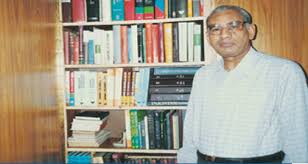
Professor K.K. Aziz was one of Pakistan’s leading historians and critics. He wrote numerous books on the history of Pakistan. ‘The Murderer of History’ written by him is considered one of the biggest critiques of textbook histories in Pakistan. It sheds light on the false history that the nation has been taught. His work consisted of the history of Punjab, British imperialism, 1971 civil war. He was not afraid to speak the truth against dictators.
10. Nighat Said Khan (1940s-)
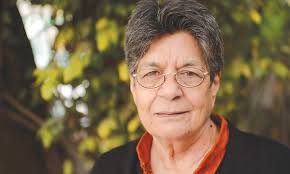
She is a scholar, writer, activist, and feminist. She heads one of the most independent research institutes of Pakistan — Applied Socio-Economic Research (ASR) Resource centre. She wrote on feminism in Pakistan before it was mainstream. Besides, she is known internationally as an expert on peasant movements, conflict, and peace.
This is not the end of the trail. There are countless other intellectuals whom we should be always thankful for liberating us and inspire us to study history in a more rational and detached manner.
The metaphors all began and ended in you’
—Faiz Ahmed Faiz
A couple of days ago, I was scrolling through Facebook, and a post caught my eye. It stated how Pakistan has a shortage of intellectuals, thinkers, opinion-makers, and reformers. And yet, they definitely existed. Unfortunately, most of these brilliant minds seem missing from our history as they were neglected and ostracised by our country. Let’s remember a few of these brilliant minds on 14th August from whom I draw my inspiration, I hope you do too.
1. Eqbal Ahmad (1933-99)

Eqbal Ahmad was an anti-war, anti-imperialist, writer, academic, and journalist. He was an advocate of the Palestinian cause and was involved in the Algerian Revolution. He has influenced and collaborated with thinkers like Chomsky, Said, and Fanon. He was considered ‘a revolutionary and intellectual who was the Ibn-Khaldun of modern times.’ His advice to the younger generation was,
“Number one, read. Number two, intervene. For God’s sake, let us not be only consumers of information. Each person knows some truth – and I really think that almost anyone who is listening to you and to me right now has some knowledge, some truth, some understanding of the world, that is different from that of the dominant media institutions. The moment you find that your truth clashes with what is being peddled as their truth, intervene.”
He had a dream of establishing a liberal arts college named after Ibn Khaldun in Islamabad but could not fulfill it.
2. Kishwar Naheed (1940-)

Kishwar Naheed is an Urdu poet, activist, and feminist. She has written 12 volumes of poetry. Her poetry has also been translated into English and Spanish. She advocates of poetry based on women, society, and politics. She has also written eight books for children. She is considered one of the few champions of peace in South Asia. She has been the recipient of various awards including, Adamjee Prize of Literature on Lab-e-goya (1969), UNESCO Prize for Children’s Literature on Dais Dais ki kahanian, Best translation award of Columbia University Mandela Prize (1997), and Sitara-e-Imtiaz (2000).
3. Hamza Alavi (1921-2003)

Hamza Alavi was a Pakistani political activist, sociologist, and teacher, known for his outstanding intellectual and political integrity. He wanted to do things in and for his country and its people. He used Marxism to analyze Pakistan. He is known in the world for his analysis of post-colonial states, peasant revolutions, and marginalized groups. His readings are still relevant decades later as they teach us why the establishment still controls Pakistan. He was an avowed feminist who supported all the major women’s movements in Pakistan.
4. Shaista Suhrawardy Ikramullah (1915-2000)

A diplomat, freedom activist, and author. Begum Shaista Suhrawardy Ikramullah was the first female representative in Pakistan’s first National Assembly. She has served as Pakistan’s ambassador to Morocco. In addition, she wrote for several magazines and penned essays on Islam, language, and other themes. She was awarded Nishan-i-Imtiaz, posthumously by the Government of Pakistan in 2002.
5. Mahbub-ul-Haq (1934-98)

Pakistan’s Chief Economist who is considered an authority in development and game theory. Mahbub Haq created the Human Development Index for the UN which is still being used. He was the first to highlight inequality during the Ayub era. He also made the planning commission of Pakistan a proper institute. UN has created an award in his name: The Mahbub-ul Haq Award for his contribution to human development. He is celebrated by individuals like Amartya Sen and Kofi Annan.
6. Fazlur Rahman Malik (1919-88)

Modernist scholar of Islam, philosopher, and reformer, Fazlur Rahman was exiled for his progressive thinking. He advocated a move away from dogmatic conservative systems of religion. Still considered one of the finest modernist scholars of Islam. His writings have continued to be popular among scholars of Islam and the Near East.
7. Mubarak Ali (1941-)

Dr. Mubarak Ali is an eminent historian, activist, scholar, and a columnist. He took on the arduous task of studying our history textbooks. One of the first people to recognize state propaganda and malice in our school curriculum. He wrote comprehensive histories of ancient and medieval South Asia. In an article, he talked about how intellectuals have been changing history and I quote:
“The task of intellectuals is to create social and political consciousness and give a sense of dignity and honor to people. It is further incumbent upon them not to compromise with the existing system but raise their voice against injustice, oppression, and exploitation. There have been intellectuals throughout the course of history who have paid a heavy price for their opposition to dictators and despots. They endured imprisonment and torture but remained firm about their ideas and principles. This changed history and they became immortal.”
8. Yasmeen Lari (1941-)

Pakistan’s first female architect, known for pioneering new design philosophy. She has been involved in heritage work. Moreover, she is also an activist and has saved Sethi Mohallah Peshawar from ruin. She wrote on slum issues and created illustrated guides to the great cities Lahore and Karachi. Recently, she has been awarded the Jane Drew Prize 2020 for raising the profile of women in architecture.
9. Khursheed Kamal Aziz (1927-2009)

Professor K.K. Aziz was one of Pakistan’s leading historians and critics. He wrote numerous books on the history of Pakistan. ‘The Murderer of History’ written by him is considered one of the biggest critiques of textbook histories in Pakistan. It sheds light on the false history that the nation has been taught. His work consisted of the history of Punjab, British imperialism, 1971 civil war. He was not afraid to speak the truth against dictators.
10. Nighat Said Khan (1940s-)

She is a scholar, writer, activist, and feminist. She heads one of the most independent research institutes of Pakistan — Applied Socio-Economic Research (ASR) Resource centre. She wrote on feminism in Pakistan before it was mainstream. Besides, she is known internationally as an expert on peasant movements, conflict, and peace.
This is not the end of the trail. There are countless other intellectuals whom we should be always thankful for liberating us and inspire us to study history in a more rational and detached manner.
